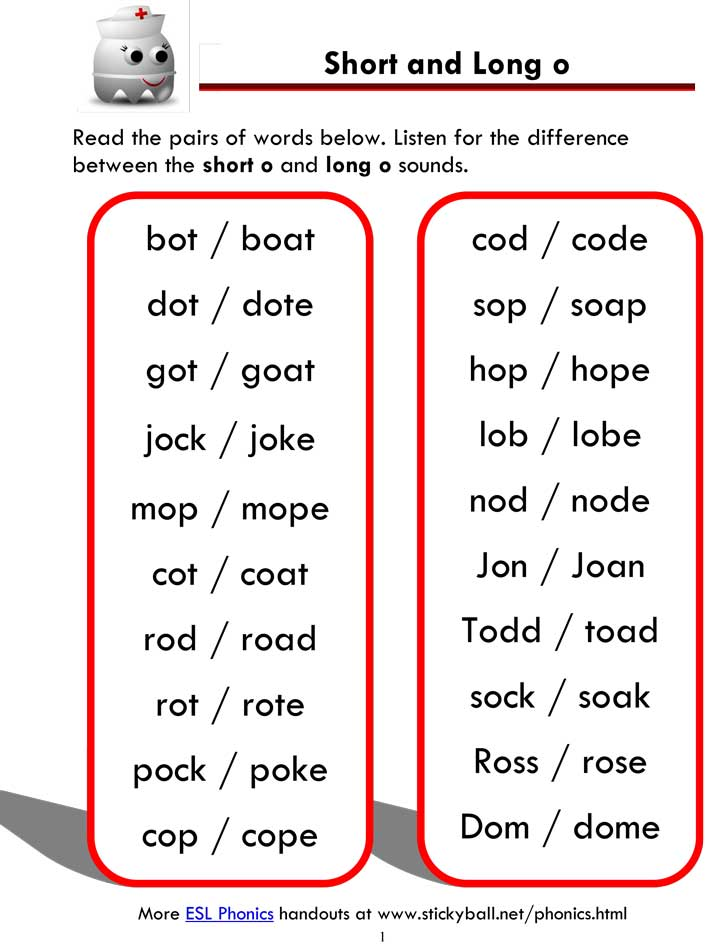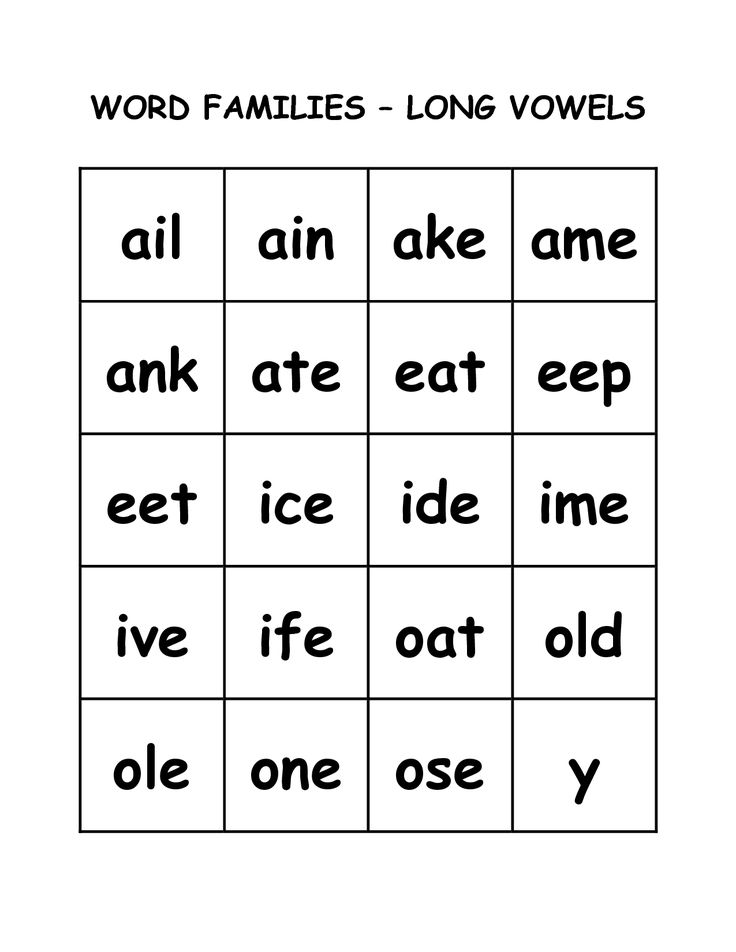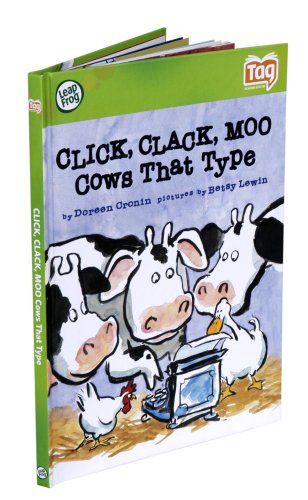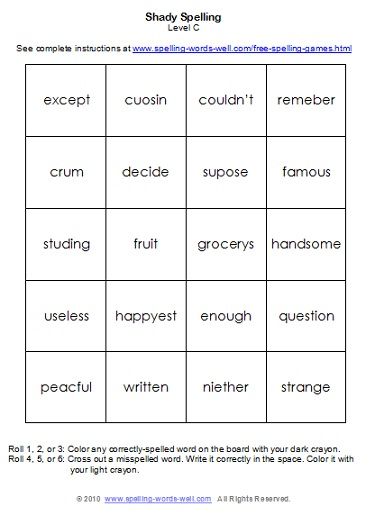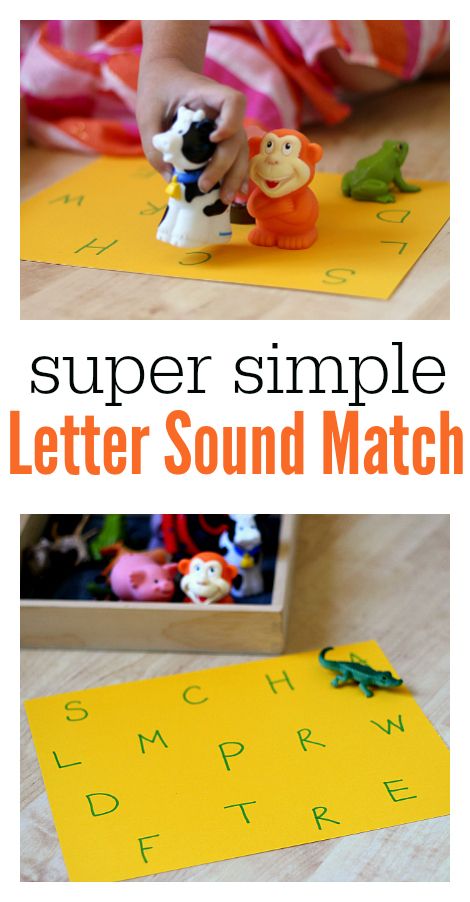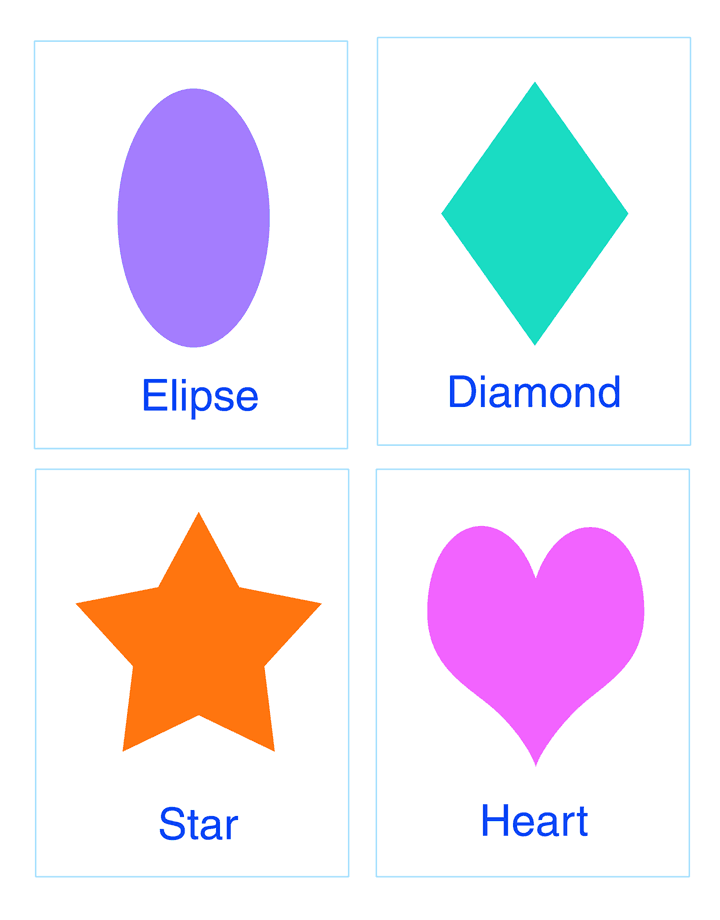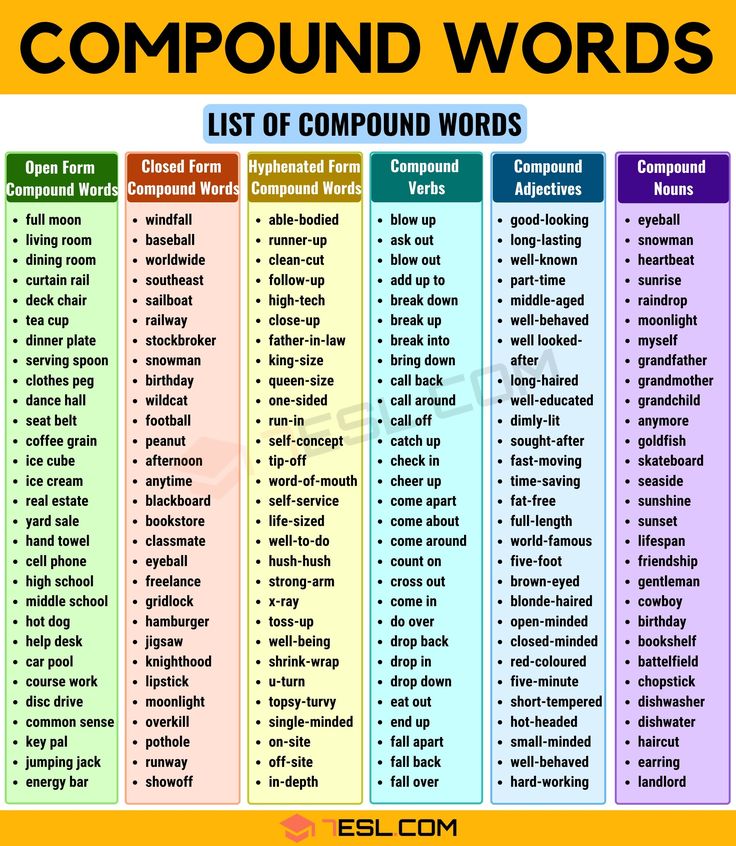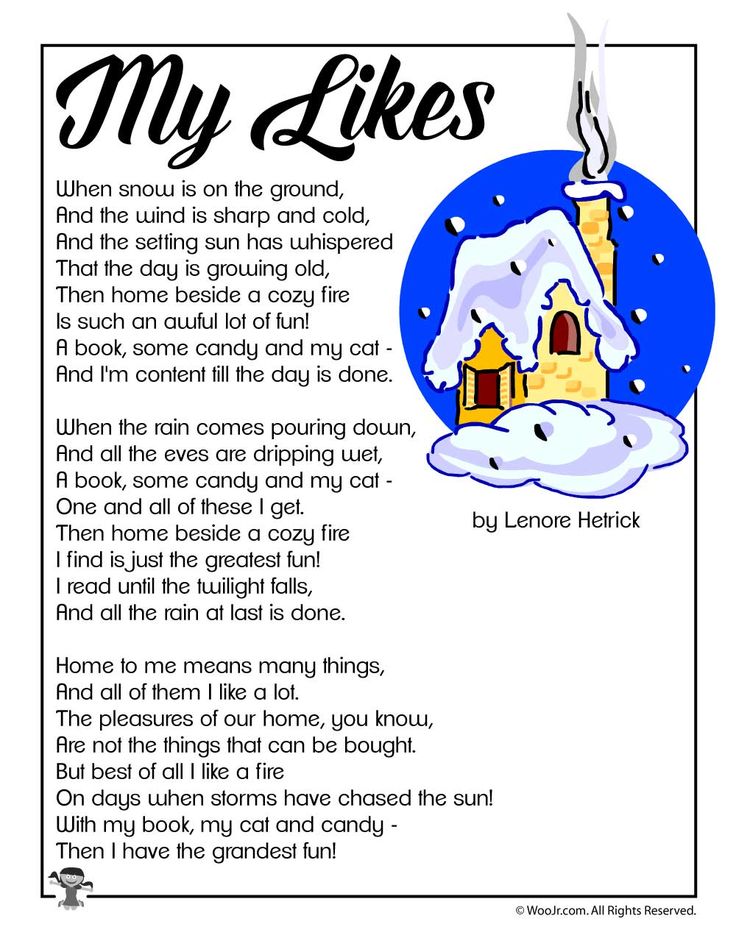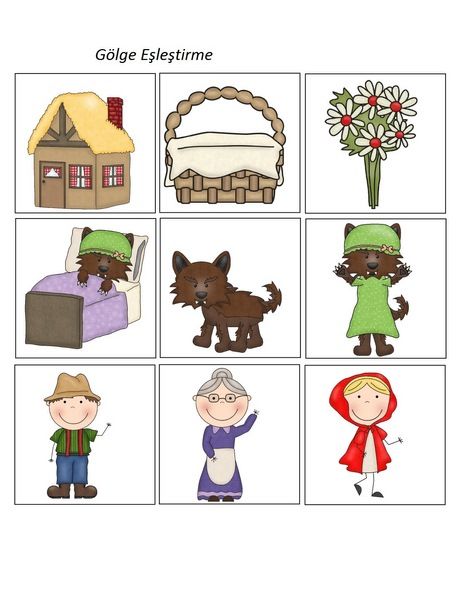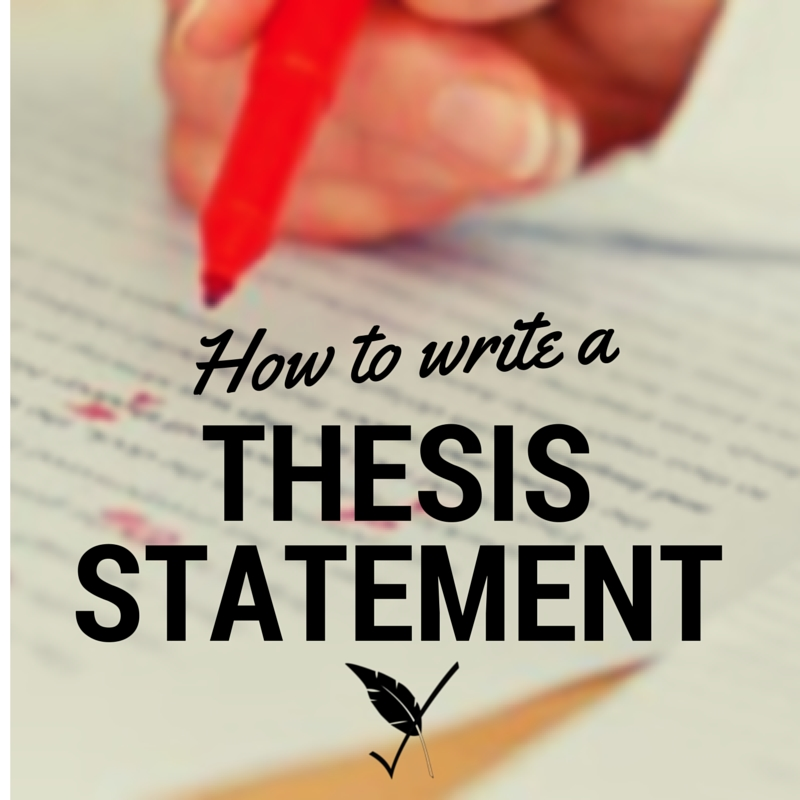Long and short e words
Short and Long E Vowel Sound Words List
Today we’ll discuss about vowel ‘e’ and learn different sounds it produces when it is used in a word.
One of the first encounters for a student will be this concept is of long and short vowel sounds, such as e. Short e, written phonetically as ?, makes the vowel sound of e, as in bet, get, bed and pen.
The following extensive list introduces “short e” and “long e” sound words to kindergarten students.
Short E Vowel Sound WordsFollowing is a list of words with short e sound:
| ben | bed | beg | bet | den | fed |
| gem | get | gel | hen | hem | jet |
| keg | led | leg | let | men | met |
| net | pen | peg | pet | red | set |
| ten | Ted | vet | yet | wed | wet |
| Ferry | Deck | Elbow | Echo | Egg | Pencil |
| Bread | Ready | Breath | Steady | Threat | Heavy |
| Pleasure | Deaf | Measure | Sweat | Weapon | Spread |
There are two ways to make a short e sound:
- Using letter e: These words use just the letter e to spell the short /e/ sound.
Such as in 3 letter short e cvc words where vowel ‘e’ is used between two consonants
| Bed | Wet | Ted | Fed |
2. EA Words: These words use EA digraph to spell short /e/ sound. For example:
| Head | Read | Weather | Already |
Go through the words given in above table and try to pronounce them, Have you noticed anything?. You must have observed that we don’t have to stress on the vowel ‘e’ therefore we hear a soft ‘e’ sound.
Now let’s have a look at long ‘e’ vowel words where you would have to stress the vowel ‘e’ to pronounce the words correctly.
Long E Vowel Sound WordsFollowing is a list of phonics words with long e vowel sound:
| Bead | Bean | Mean | Lean | Dean | Teen |
| Feet | Heat | Beet | Beat | Seam | Keen |
| Meat | Meet | Sheet | Bleet | Feed | Need |
| Lead | Seat | Sleet | Fleet | Neat | Greet |
| Become | Gene | Recess | Theme | Evening | These |
| Portuguese | Decide | Happy | Relax | Glory | Delight |
| Field | Deceit | Brief | Receive | Mischief | Conceive |
Let’s explore seven different ways of spelling Long e sound:
This week we’re looking at the long /e/ sound and the seven different ways of spelling it.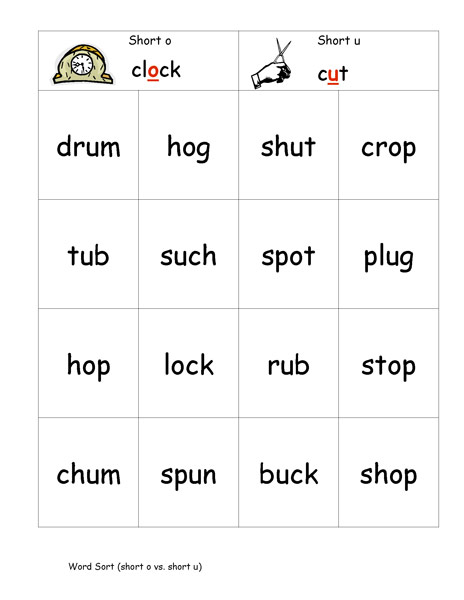
1. Using letter e: These words use just the letter e to spell the long /e/ sound.
This spelling of the long /e/ sound is also used for words beginning with prefixes ‘re-‘, ‘be-‘, and ‘de-‘.
| evening | between | delight | recess |
There are some exceptions which include common words like ‘she’, ‘he’, ‘we’, ‘me’, and ‘be’.
2. EE Words: These words spell the long /e/ sound with the letters ee, which usually appears in the middle of the word and occasionally at the end of the word. For example:
| Meet | Seed | Three | Tree |
3. EA Words: These words spell the long /e/ sound with the letters ea. Here are some examples:
| Year | Feat | Reason | Peach |
| Season | Reach | Breathe | Squeak |
4.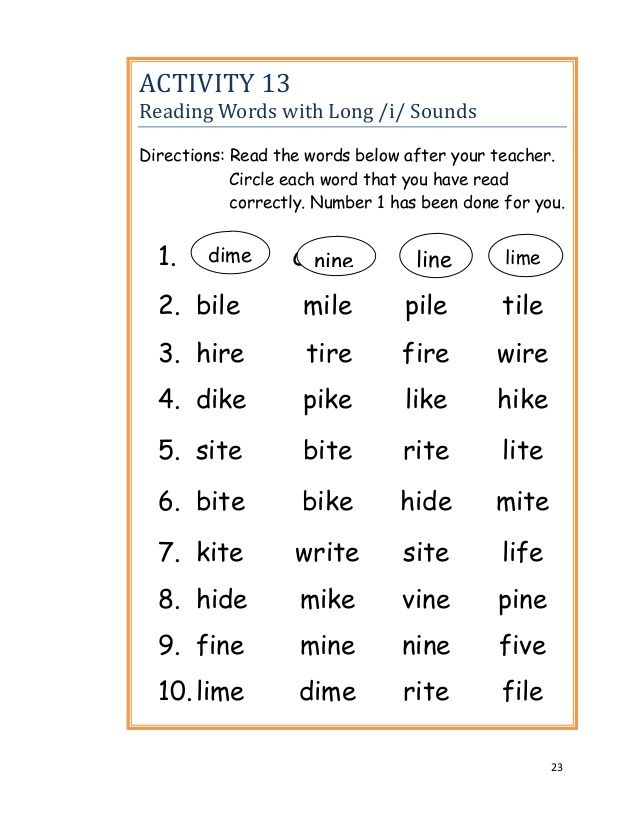 E_E Words: These words use split digraph e_e to spell the long /e/ sound, with an e in the middle of the word and an e at the end of the word. Here are some examples:
E_E Words: These words use split digraph e_e to spell the long /e/ sound, with an e in the middle of the word and an e at the end of the word. Here are some examples:
| Here | Theme | Concrete | Portuguese |
5. Y words: These words use letter y at the end to spell the long /e/ sound.
| Cherry | Glory | Twenty | Empty |
6. IE Words: These words use digraph ie to spell the long /e/ sound. Here are some examples:
| Shriek | Relieved | Brief | Fierce |
7. EI Words: There long /e/ sounds in these words are spelled with the letters ei, because the ‘i before e’ spelling rule doesn’t apply after the letter c.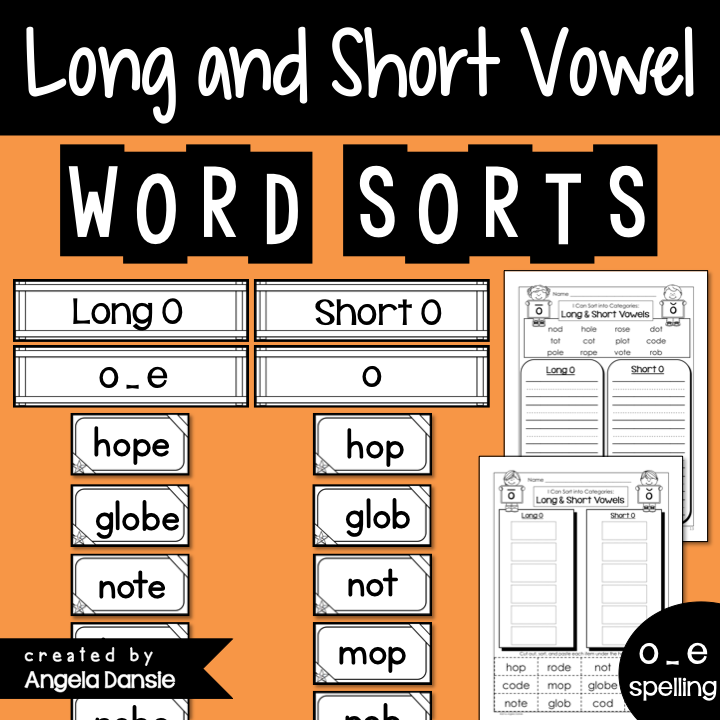
| Ceiling | Conceive | Receipt | Perceive |
Because you have to stress long on vowel ‘e’ to make a sharp sound, they are called Long ‘e’ vowel words.
We hope you have found this post useful for your child. Practice sounding out these words to help your child upgrade his/her phonics skills.
Keep exploring EnglishBix to find more resources related to Elementary Grades.
Quick Links
Browse Long E/Short E Educational Resources
Entire LibraryPrintable WorksheetsGamesGuided LessonsLesson PlansHands-on ActivitiesInteractive StoriesOnline ExercisesPrintable WorkbooksScience ProjectsSong Videos
83 filtered results
83 filtered results
Long E/Short E
Sort byPopularityMost RecentTitleRelevance
-
Filter Results
- clear all filters
By Grade
- Preschool
- Kindergarten
- 1st grade
- 2nd grade
- 3rd grade
- 4th grade
- 5th grade
- 6th grade
- 7th grade
- 8th grade
By Subject
- Coding
- Fine arts
- Foreign language
- Math
Reading & Writing
- Leveled Books
- Reading
- Writing
Grammar
Phonics
Letter Sounds
- Beginning Sounds
- Middle Sounds
- Ending Sounds
- Stretching Words
Vowels
- Long A/Short A
Long E/Short E
- Long I/Short I
- Long O/Short O
- Long U/Short U
- Vowel Teams
- Short Vowels
- Long Vowels
- Silent E
- R-Controlled Vowels
- Consonants
- Silent Letters
- Decoding Words
- Rhyming Words
- Syllables
- Word Patterns
- Spelling
- Language and Vocabulary
- Grammar and Mechanics
- Science
- Social emotional
- Social studies
- Typing
By Topic
- Holidays
- Offline games
By Standard
- Common Core
Sound Sorting
Workbook
Sound Sorting
Sort out the short vowel sounds with this comprehensive phonics packet! Beginning readers will review vowel families and practice differentiating between "short" vowels and "long" vowels.
1st grade
Reading & Writing
Workbook
Short A 2
Guided Lesson
Short A 2
Having a strong understanding of short A words like bag, hand and bat can help first graders with reading fluency. This guided lesson helps to support first graders as they expand their comprehension of short A words. With targeted exercises and familiar examples, the lesson will take kids through the short A words they will most commonly come acrsoos in first grade texts.
1st grade
Reading & Writing
Guided Lesson
Short E 2
Guided Lesson
Short E 2
The short E sound, found in words such as leg, lemon and pen, is one of the most common vowel sounds in the English language, and one that first graders will often find in the texts they are learning to read. This lesson provides guided practice with the short E sound through targeted instruction and helpful examples.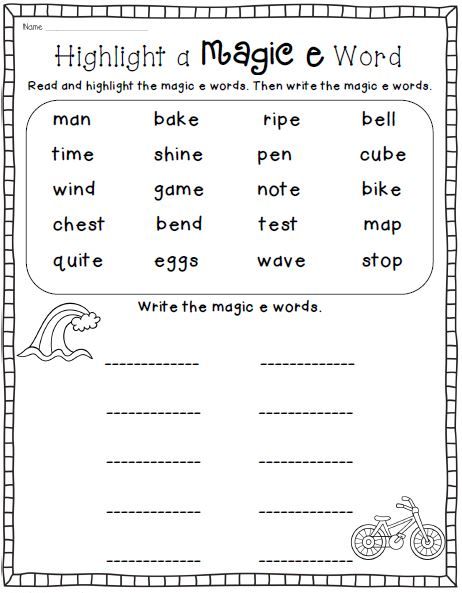 Check out our short E worksheets at the end of the lesson.
Check out our short E worksheets at the end of the lesson.
1st grade
Reading & Writing
Guided Lesson
Search Long E/Short E Educational Resources
Helping students learn the difference between the long E and short E, found in queen or best, for instance, is a lot easier when you have examples to work with. That’s why Education.com has put together the worksheets below that help with teaching long e and short e. Some of the games will even help students deal with the tricky silent E.
In the English language, there are several letters and letter combinations that make different sounds depending on how they’re used. One of the first encounters your student will have with this concept is long and short vowel sounds, such as e.
Short e, written phonetically as ĕ, makes the vowel sound of e, as in west, bet, fed, and less. The long e, written phonetically as ē, makes the sound of the name of the vowel, as in beet, feet, eat, and sheet.
While the short e is simple, identifying when to use the long e sound can be more difficult. There are several rules that you can teach your students about when and how to use the long e sound:
- Vowels at the end of the syllable may be long as in emu and hero.
- When a word ends with a silent e, the vowel in the middle will be long as in scene and extreme.
- Vowel pairs and combinations can produce the sound of a long e. For example, sheep and eat.
- The letter e isn’t always necessary to produce the long e sound. Words ending in y like puppy and fluffy are examples of this.
Most students begin to learn to read shortly after learning the alphabet. The thought that the sounds they just learned are not the only sounds these letters make can be intimidating to early learners. Spending time practicing these sounds with the resources provided by Eduation.com may help children understand and further their early reading.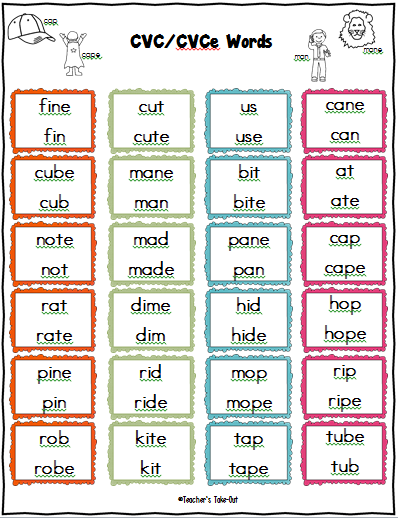
Long and short words - online presentation
Similar presentations:
Scientific style of speech
Russian language project - Story about the word Zvezda
USE-2019 in Russian. Task 9
Technology V.A. Ilyukhina "Letter with open rules" for primary school students
Language and professions. Culture of speech
Presentation based on the story of V. Bocharnikov "Small, but daring"
The role of the Russian language in multinational Russia
USE-2019 in Russian. Task 10
New essay on the exam. Comment
Artistic style of speech
1. Long
Compiled by: teacher-speech therapist MBU DOMurmansk PPMS-Center
Strelkova Irina Sergeevna
2. Let's go to the country of words!
An exciting adventure awaits us today! We are going to the land of words!But how can we get there?
Transport will help us with this!
Over the mountains and forests we can fly on .
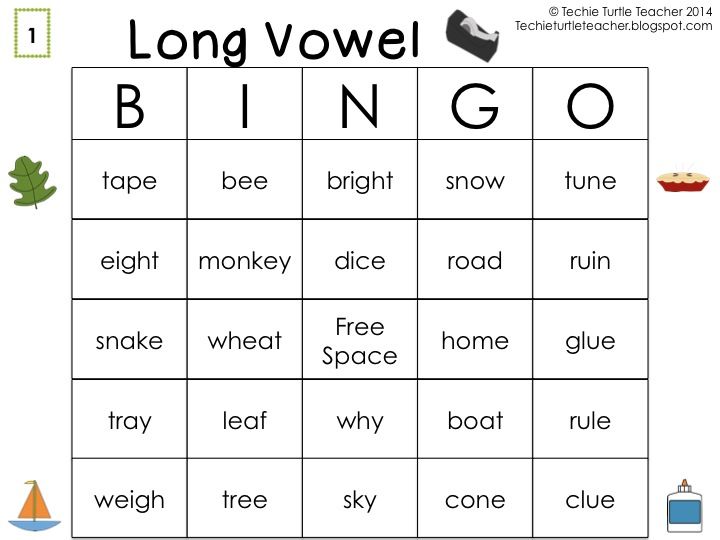 .. (airplane)
.. (airplane) Look at the plane in the sky (hands to the sides, tilts to the right and left),
And in the plane that is the pilot (fold the “glasses” with your fingers, look through them)
And flies between the clouds (hands to the sides, tilts to the right and left)
Under the plane, then a mountain (fold the peak of the mountain /\ with your palms),
Now a dense forest, then a hole (cover your face with your palms, spread your fingers, then
make a circle with your hands in front of face),
Then the people marvel at the sky (alternately we substitute palms to the forehead, making
turns to the sides),
Then the hares lead a round dance (hold hands, walk in a circle)
3. U----------- U------------U U-U------------U-U----------U-U U-U-U --------U-U-U--------U-U-U
(rhythmically reproduce onomatopoeia)U-----------U---- --------U
U-U------------U-U----------U-U
U-U--- -----U-U-U--------U-U-U
4. Such different words!
The word is a house for sounds.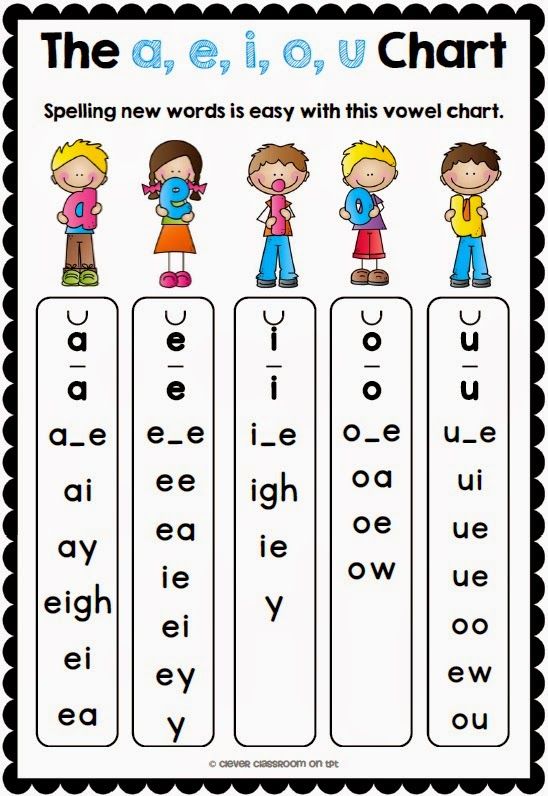 There are words small - short, few lives in them
There are words small - short, few lives in them sounds: whale, cat, ball (show by the distance between the palms: [ ]). And there are big,
long words in which many different sounds live: dog, hippopotamus (distance between
palms: [
]).
5. How do you know if a word is long or short?
We will measure them! But the ruler will not suit us!Words can be measured in different ways:
1. Words can be tapped
When naming a word, hit the table with your palm and ask the child: "How many times did we tap
?" - "Just one time! So the word is short.
When you tap out a word of several syllables (for example: "goat", "milk"), first
call the first syllable "ko" and strike, pronounce: "one", bending the finger on the other hand;
then - “for”, make a blow, bend the second finger - “two”. "How many punches did we take? - Two!
So the word is long. Similarly, we tap words of three syllables, count and conclude:
is a long word!
JUICE
CAR
FOREST
RASPBERRY
MILK
GOOSE
GOAT
6.
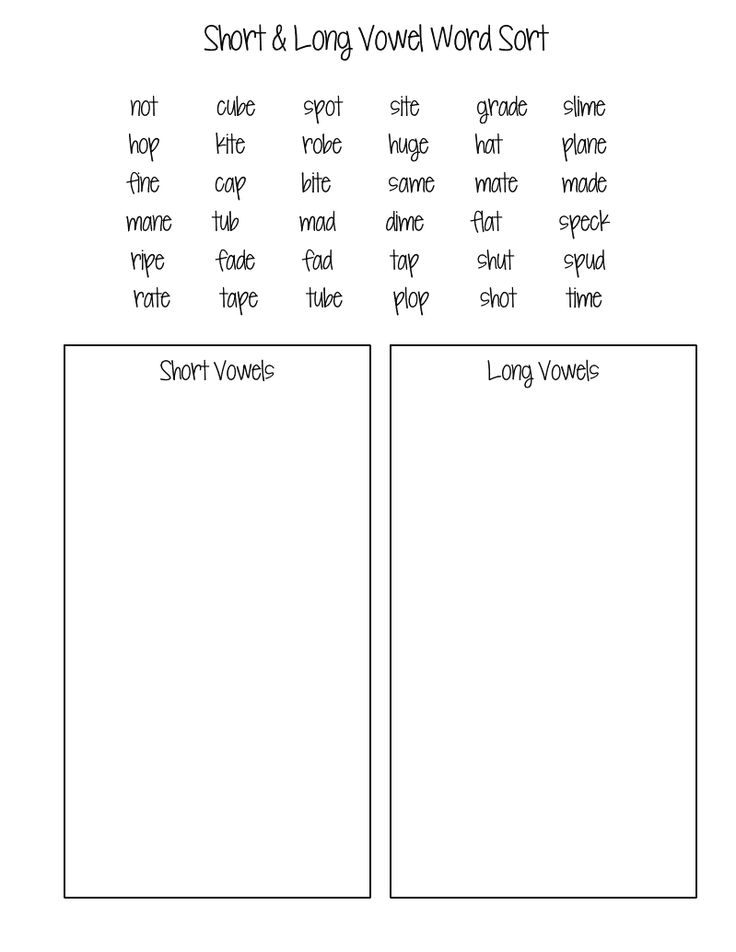 How do you know if a word is long or short? 2. Words can be walked
How do you know if a word is long or short? 2. Words can be walked Choose a place where it will be most convenient for you to walk (for example, a wall) - this will be the starting point.
When naming a word, take a step forward for each syllable: “com” - one syllable - one step; "leg" - two
syllables - two steps; "cow" - three syllables - three steps.
! At the same time, starting to walk a new word - return to the place that you determined by
at the beginning.
Draw your child's attention to how far you have gone from the beginning by naming different words. So
in a way that visually reinforces your conclusion. Ask your child how many steps you took with him.
- if one - then the word is short. Two three? - a long word!
For example: “Juice - we have taken one step. Water - two steps and went further. What is the longest word?
Which one is short?
JUICE
DOG
ONION
VEGETABLES
MICE
LION
CART
MOON
WHALE
11.
 Excellent! We did it!
Excellent! We did it! 12. TU-----------TU------------TU TU-TU------------TU-TU-- --------TU-TU TU-TU-TU--------TU-TU-TU--------TU-TU-TU
Let's go by train!Let's hum like a train
rhythmically reproduce onomatopoeia)
TU-----------TU------------TU
TU-TU--------- ---TU-TU----------TU-TU
TU-TU-TU--------TU-TU-TU--------TU-TU- TU
English Russian Rules
The longest words in the Russian language
The Russian language is considered quite difficult, compared, for example, with German or English, although Scandinavian languages are probably in the first place in terms of the degree of difficulty in pronouncing words.
There are a lot of long words in it. If we talk about the longest, then in the Guinness Book of Records the longest word in the Russian language is declared "X-ray electrocardiographic" , it has 33 characters. It was the record of 1933. And in 2003, it was replaced by a word of 35 characters - "highly contemplating" .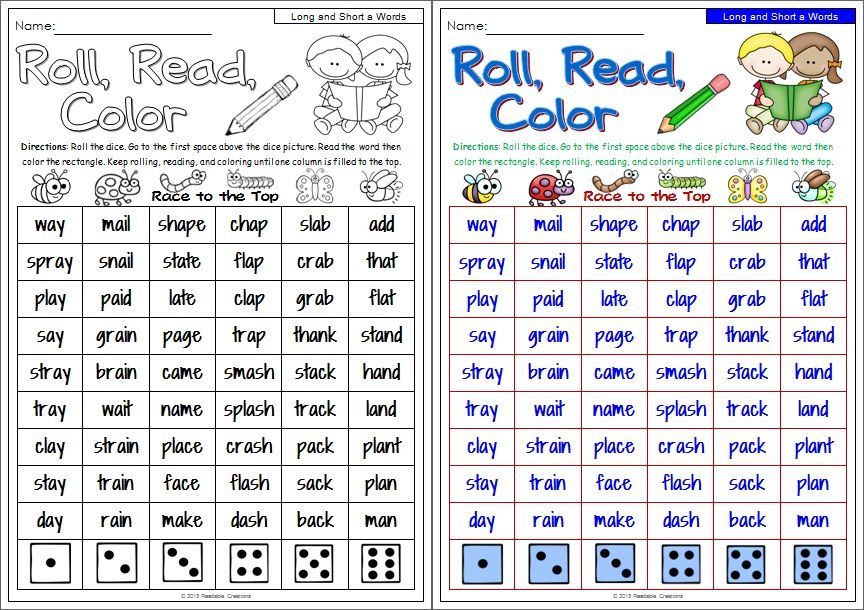
Chemistry is a storehouse of the longest words
Although their leadership is formally recognized, in analytical chemistry there are simply huge names of substances, since they are built according to a certain scheme. For example, adjective "tetrahydropyranylcyclopentyltetrahydropyridine" consists of 55 letters. Or "methoxychlorodiethylaminomethylbutylaminoacridine" - 44 characters.
Another example: the prefix "great-" can be used in a concept that indicates the degree of relationship, many times - "great-great-great-great-great-great-great-grandfather" . Theoretically, this word can be stretched indefinitely. Word formations from numerals that denote certain quantities can also be extremely long: "one thousand nine hundred and seven six centimeter" - 43 characters. However, regarding all these examples, philologists are still arguing whether to consider them the longest words in the Russian language. They are not universally used, and the possibility of making endless designs distinguishes them from the bulk.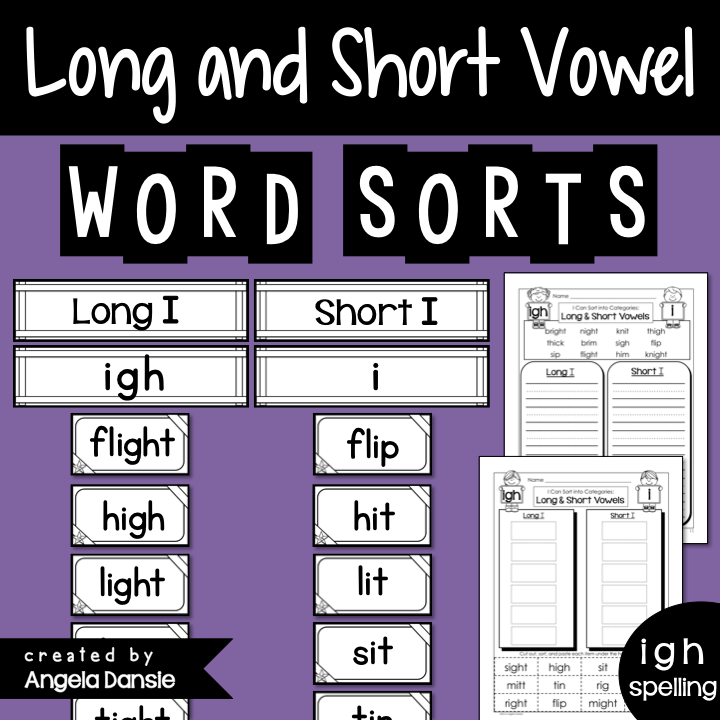
The longest verbs and other parts of speech
If we talk about verbs, the longest words are “re-examine” and “internationalize” , they have 24 letters each, if you form word forms from them with an ending, for example, “-smoking” , then you get 25 letters each. In the longest nouns - "misanthropy" and "excellency" - also 24 letters each - you can create word forms in the plural, and you get 26 letters (although the first word is not used in the plural). Among animate nouns, most of the letters - 21 each - in the words "eleventh grader" and "clerk" . The longest interjection recorded in Russian dictionaries is "physical education hello" .
We are used to the fact that prepositions and conjunctions are short words, but the word “respectively” falls out of the general row, it has 14 letters. The situation is similar with adverbs - there is only one long adverb "unsatisfactory" , consisting of 19 letters.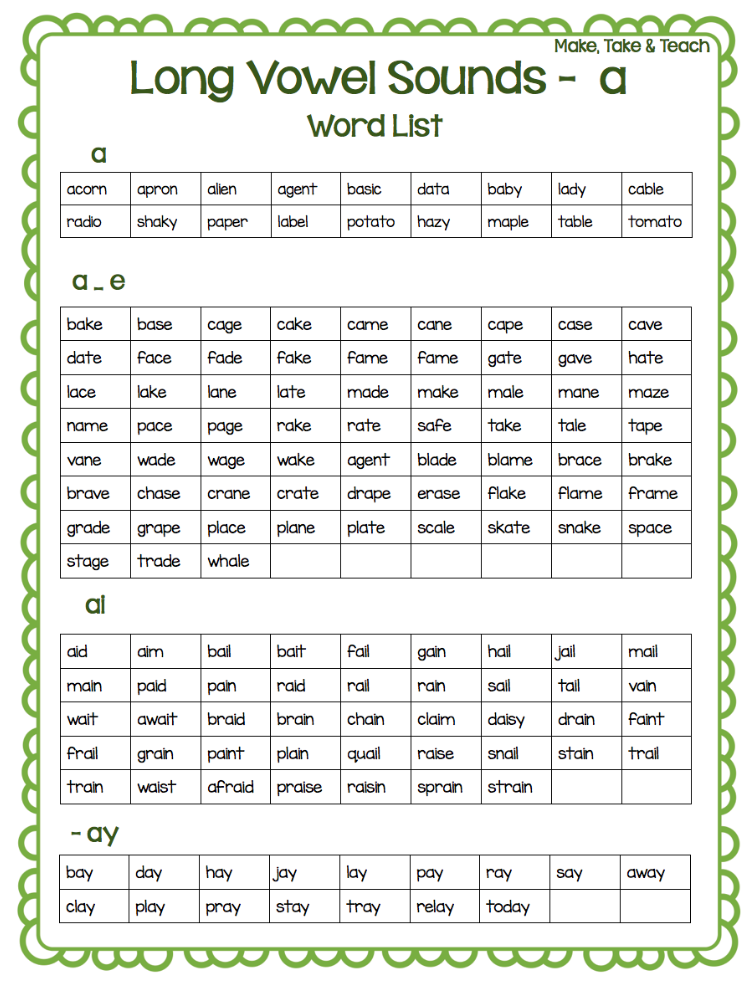
Some argue whether nouns and adjectives with hyphens can be considered as the longest words in the Russian language, because they are “glued together” artificially, but still let's pay attention to them: in word "agricultural machine-building" - 38 characters, and in "grubber-bulldozer-loader" - 31. Similar words include an adjective (although it is without a hyphen) "electrophotosemiconductor" - 28 characters and "water and mud peat paraffin treatment » - 29 characters. The longest food word formation - out of 38 characters - "bread sausage kindly productive" . The word is funny, but at the same time noted in an authoritative source - the spelling dictionary of the Russian Academy of Sciences (responsible ed. V. V. Lopatin).
The longest words in literature
If we recall the classical literature, Nikolai Leskov has the word “in the right way” in one of his popular stories . Interestingly, no one can reliably explain what it means - most likely, Leskov himself invented it.
Interestingly, no one can reliably explain what it means - most likely, Leskov himself invented it.
Probably the longest abbreviation will also make an indelible impression on you: "NIIOMTPLABOPARMBETZHELBETRABSBORMONIMONKOH-OTDTEHSTROMONT" . We will not list the full name of this institute - it will take a whole paragraph. Imagine how difficult it was for the employees of this scientific institution to name their position or place of work if necessary.
An interesting fact - there is an extremely long word for phobia - the fear of just long words! It sounds like this: hippopotomomonstrosesquippedaliophobia (37 characters). By the way, this is actually a Latin term "hippopotomomonstrosesquippedaliophobia" , which is recognized as the longest word in the world.
The most difficult words
A lot of interesting facts can be found about the most difficult words in the Russian language. For example, it is generally accepted that three "e" are only in the word "long-necked" .